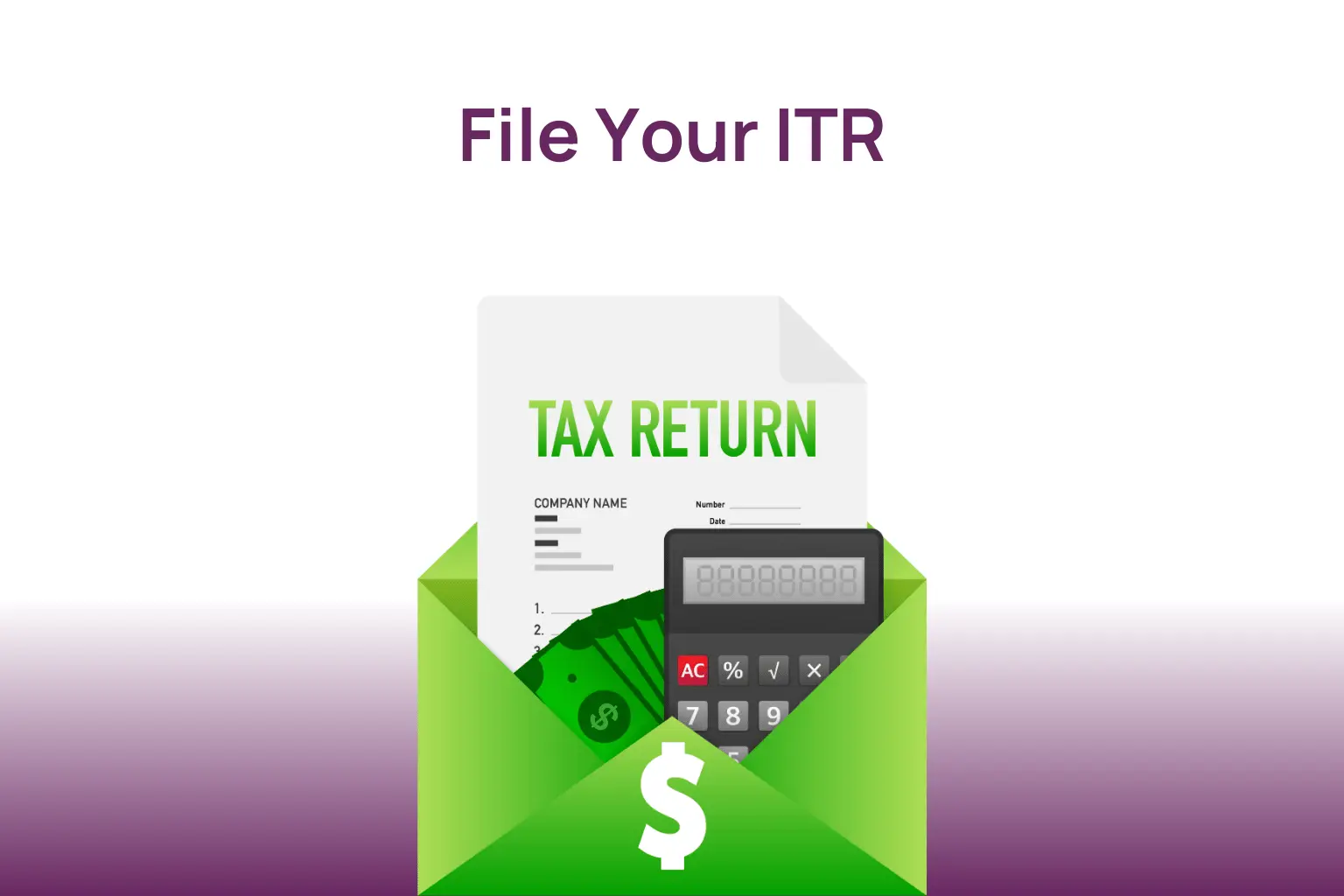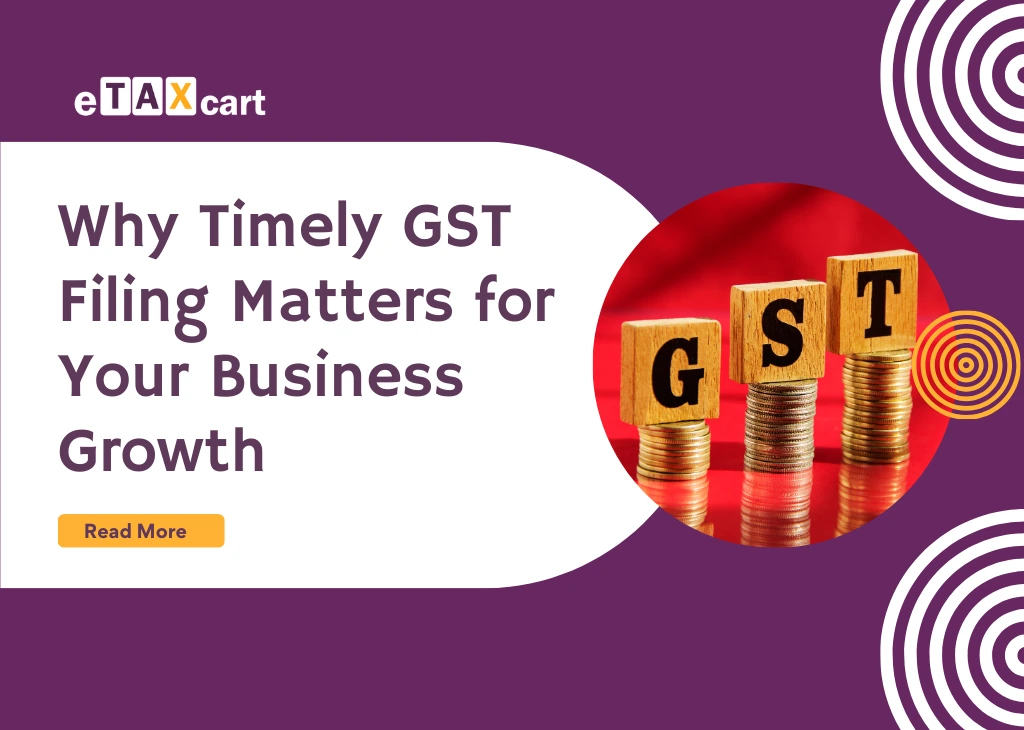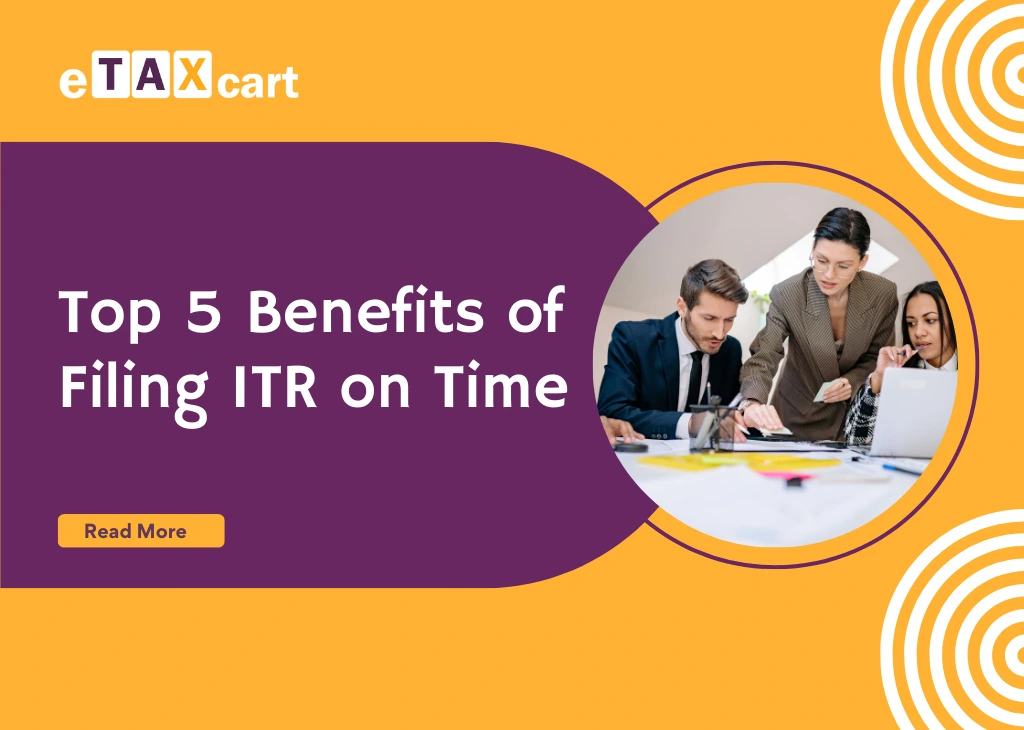
ITR on Salary & Capital Gain
At eTaxCart, our mission is to make tax and compliance stress-free — so you can focus on growing your career, your business, or your next big idea.
Salary & House Property
- Salary and pension from one employer (below ₹5 lakhs)
- Rental income from a single property
- Income from other sources
- Agricultural earnings
Salary & House Property
- Salary and pension from single or multiple employers (less than ₹50 lakhs)
- Rental income from single or multiple properties
- Income from other sources
- Agricultural earnings
Capital Gain, Salary & House Property
- Capital gain from multiple sale/purchase
- Lottery income (dream 11, etc.)
- Salary and pension from single or multiple employers (less than ₹50 lakhs)
- Rental income from single or multiple properties
- Income from other sources
- Agriculture income
ITR on Business & Capital Gain
At eTaxCart, our mission is to make tax and compliance stress-free — so you can focus on growing your career, your business, or your next big idea.
Business/Profession & House Property
- Business/professional income (non-audited) – without financial statements
- Salary and pension from single or multiple employers (less than ₹50 lakhs)
- Rental income from single or multiple properties
- Agricultural earnings
Business/Profession, capital gain & House Property
- Capital gain from multiple sale/purchase
- Lottery income (dream 11, etc.)
- Business/professional income (non-audited) – without financial statements
- Salary and pension from single or multiple employers (less than ₹50 lakhs)
- Rental income from single or multiple properties
- Income from other sources
- Agricultural earnings
ITR on Future & Options Crypto
At eTaxCart, our mission is to make tax and compliance stress-free — so you can focus on growing your career, your business, or your next big idea.
Future & Options
- F&O Income
- Speculative income (intraday trading)
- Capital gain from multiple sale/purchase
- Lottery income (dream 11, etc.)
- Business/professional income (non-audited) - without financial statements
- Salary and pension from single or multiple employers (less than ₹50 lakhs)
- Rental income from single or multiple properties
- Income from other sources
- Agriculture income
Crypto
- Cryptocurrency income
- F&O income
- Speculative income (intraday trading)
- Lottery income (dream 11, etc.)
- Business/professional income (non-audited) - without financial statements
- Salary and pension from single or multiple employers (less than ₹50 lakhs)
- Rental income from single or multiple properties
- Income from other sources
- Agriculture income
What is Income Tax Return (ITR)?
An Income Tax Return (ITR) is a formal document that individuals, businesses, and other entities file with the Income Tax Department to report their income, expenses, and tax obligations for a specific financial year. The primary purpose of filing an ITR is to assess tax liability and ensure compliance with tax laws. Individuals and businesses must file an ITR if their income exceeds the basic exemption limit. Different forms are available depending on the type of income or entity. The ITR provides benefits such as claiming tax refunds, carrying forward losses, and fulfilling legal obligations.
The due date for filing an Income Tax Return (ITR) for individuals is generally July 31st of the assessment year. For the Financial Year 2024-25 (Assessment Year 2025-26), the deadline for filing ITR is July 31, 2025.
Example:
Consider Mr. Raj, a salaried employee in Delhi, who earns an annual salary of ₹8,50,000. Since his income exceeds the ₹2.5 lakh threshold, he is required to file an ITR. For the Financial Year 2024-25, the due date for him to file his ITR is July 31, 2025.
Consequences of Late Filing:
If Mr. Raj misses the due date, he can still file a belated return until December 31, 2025. However, this will result in the following consequences:
Late Filing Fee
- ₹1,000 if the total income is ₹5 lakh or less.
- ₹5,000 if the total income exceeds ₹5 lakh.
Interest on Tax Payable
Interest will be charged at a rate of 1% per month (or part of a month) on the unpaid tax amount from the due date until the actual filing date.
It is always advisable to file the ITR within the stipulated time frame to avoid unnecessary penalties, interest, and complications.

Advantages of Filing Your ITR on Time
At eTaxCart, our mission is to make tax and compliance stress-free — so you can focus on growing your career, your business, or your next big idea.

Claim Tax Refund
If excess tax is paid through TDS, the individual can receive a refund by filing the ITR.

Loan Applications
ITR serves as proof of income, which is often required by banks and financial institutions when applying for loans, mortgages, or credit.

Carry Forward Losses
Taxpayers can carry forward certain types of losses (e.g., capital losses) to offset against future income, reducing future tax liability.

Build Financial History
Filing ITR helps in building a strong financial history, which is important for credibility and financial planning.

Avoiding Tax Scrutiny
Timely and accurate filing of ITR helps avoid unnecessary scrutiny from tax authorities and ensures smooth tax compliance.

Claim Tax Deductions for Expenses
Business owners can claim various business-related expenses that reduce their taxable income, resulting in lower taxes.
Key Features of Filing ITR
Here are the key features of a Filing ITR in India
-
Reporting of Income
Filing an ITR allows individuals to report their income from salary, allowances, business/ professional income and other sources like dividend, interest or rental income.
-
Claiming deductions
Business expenses like salaries, rent, utilities, and depreciation can reduce taxable income, while salaried individuals can benefit from deductions under sections 80C (investments), 80D (health insurance), and 80G (charitable donations).
-
Tax Credit
Filing an ITR helps in ensuring that tax deducted at source (TDS) by the employer, Bank, contractor, etc is correctly credited to the taxpayer’s account.
-
Compliance with Law
Filing ITR is a legal obligation if the individual's income exceeds the exempt limit, ensuring they remain compliant with tax laws.
-
Financial Record
Filing an ITR creates an official financial record, which may be needed for obtaining loans, visas, or other financial purposes.
-
Avoiding Penalties
Timely filing of ITR ensures compliance with the law and helps avoid penalties for late filing or underreporting of income.
Type of ITR & Related To Which Individual
Each ITR form is designed for a specific category of taxpayers based on the type of income they earn. Choosing the correct form ensures proper reporting and tax compliance.
ITR-1 (Sahaj)
Applicable to Individuals with income up to ₹50 lakh from salary, pension, long term capital gain upto 1.25 lakh and other sources (interest, dividend etc.), and income from one house property.
Not Applicable to Individuals having income from business or profession, or who have capital gains.
ITR-2
Applicable to Individuals and Hindu Undivided Families (HUFs) having income from salary, house property, capital gains, and other sources, but not from business or profession.
Not Applicable to Those who are eligible for ITR-1 or ITR-3 (business income).
ITR-3
Applicable to Individuals and HUFs who have income from business or profession.
Not Applicable to Individuals with only salary income or those eligible for ITR-1.
ITR-4 (Sugam)
Applicable to Individuals, Hindu Undivided Families (HUFs), and firms (other than LLPs) with income from business or profession under the presumptive taxation scheme (Sections 44AD, 44ADA, and 44AE).
Not Applicable to Businesses that are not eligible for presumptive taxation.
Required Documents for ITR Filing
To ensure a smooth and efficient process for filing income tax returns for individuals, HUF, LLPs, or companies, the following documents are required.
For Salary Income
View the documents required for the directors.
Form 16 (Part A & B): This is the salary certificate provided by your employer that details your income, deductions, and tax paid.
Bank Account Details: Include your bank account number, IFSC code, and the account holder’s name to receive any refunds.
Home/Educational Loan Statement: These documents are needed to claim deductions for the interest paid on loans under sections 24(b)(Housing Loan Repayment Statement) or 80E (Educational Loan Statement).
Interest Certificates: Any bank-issued certificates showing interest income earned, such as from savings or fixed deposits.
Proof of other income: Such as rental income, freelance earnings, or capital gains.
Investment proofs: For tax-saving investments like PPF, ELSS, or insurance premiums under Section 80C.
Deduction proofs: For tax-saving investments like PPF, ELSS, or insurance premiums under Section 80C and Health Insurance Premium under section 80D.
For Capital Gain Income
View the documents required for the company.
Sale and Purchase Agreements/Deeds: These documents validate the purchase and sale transactions.
Calculation of Capital Gain: This involves the purchase price, sale price, cost of improvement, transfer expenses, and other applicable costs to determine the taxable gain.
Registration Details: These confirm the transfer of ownership and help in calculating the property’s registration costs, which contribute to the capital gain calculation.
For Equity Shares Sold:
Capital Gain Statements from the Broker: These statements, provided by the stockbroker, detail the buy and sell transactions, helping to calculate the capital gains from the sale of equity shares.
For Mutual Funds Sold:
Capital Gain Statements of Mutual Funds: Mutual funds issue statements that outline the buy and sell details, which are crucial in determining the capital gains on these investments.
Documents Based on Relevant Case-to-Case:
Depending on the nature of the income and transaction, additional documents may be required.
Stages of ITR Filing

Application
Share Document & Fill Questionnaire

File ITR Form
File ITR Form & Provide Tax Computation (New & Old Regime)

Approval
Approval, Submission & E-Verification
Frequently Asked Questions
Here are the answers of the questions we received frequently.
ITR stands for Income Tax Return, a prescribed form used to report income earned and taxes paid during a financial year. It helps to communicate details to the Income Tax Department, allow for the carry-forward of losses, and claims refund. Different ITR forms are required based on your income status and nature. At eTAXcart, we assist you through the process, ensuring smooth, hassle free, accurate and timely filing.
You may need to file your Income Tax Return (ITR) for F.Y. 2024-25 if any of the following apply to you:
- Your income is above the exemption limit
- ₹2.5 lakh (below 60 years)
- ₹3 lakh (60-80 years)
- ₹5 lakh (80 years+)
- You have earned foreign income
- You have taxable capital gains (e.g., from stocks or property sales)
- You wish to carry forward any losses to future years
- You have received notice from the Income Tax Department
If none of these apply to you, you may not need to file your ITR. However, it’s always a good idea to double-check your situation—filing on time can help you avoid penalties and ensure smooth financial transactions in the future.
Yes, it’s still important to file your Income Tax Return (ITR) even if you don’t have positive income. Here’s why:
- Claim losses for future use: If you’ve sustained a loss (e.g., from capital gains or business), you need to file your ITR on time to carry forward that loss and set it off against future positive income.
- Tax refunds: If you’re eligible for a refund, filing your ITR is the only way to claim it.
- Stay compliant: Even if you have no income, filing ensures you avoid penalties and remain compliant with tax laws.
At eTAXcart, we make the entire filing process seamless and hassle-free. Our expert team supports you every step of the way, ensuring your losses are accurately claimed and all paperwork is completed on time. Let us take the stress out of tax season!
At eTaxCart, we offer a personalized approach to make your ITR filing smooth and accurate. Our expert team will first connect with you to understand your unique sources of income—whether from salary, business, investments, or other areas. Based on this, we’ll recommend the most suitable ITR filing package tailored to your specific needs. Once you select a package, we’ll guide you in gathering all the necessary financial and mandatory documents to ensure accurate filing. With everything in place, our team will manage the entire filing process on your behalf, ensuring it’s completed correctly and without hassle. We’re here to simplify the ITR filing experience and help you meet all compliance requirements with confidence.
eTaxCart offers a seamless experience, saving you time, effort, and unnecessary stress. We understand that tax filing can be overwhelming, which is why we make the process simple, accurate, and hassle-free. Our team of expert professionals ensures your ITR is filed correctly and on time, keeping you fully compliant with the latest tax regulations. Whether you’re filing for the first time or are a seasoned taxpayer, we provide personalized support every step of the way. With our focus on accuracy and customer satisfaction, you can trust eTAXcart to handle your tax needs with care and expertise—giving you peace of mind and the best possible results.
Additional Fees:
- Additional Rs. 5000 for Balance Sheet in ITR for Salaries Above ₹50 Lakhs
- Tax Payments, Late Fees, Penalties, and Interest: All payments to the Income Tax Department, regardless of the type, must be made directly by the customer via their respective portal. Etaxcart will assist with the process only upon special request and approval.




